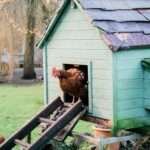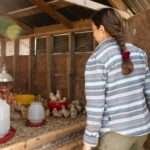Have you ever dreamt of a bustling backyard filled with clucking chickens, providing you with farm-fresh eggs and endless entertainment? Many backyard enthusiasts share this dream, and a crucial step towards realizing it is selecting the right chicken coop. Whether you’re a seasoned poultry pro or just starting your feathered adventure, assessing backyard chicken coops for sale can be daunting without the right information.
This guide will help you navigate the process of acquiring backyard chicken coops for sale with confidence. While you might be tempted by the allure of brand-new coops, there’s an often-overlooked gem in the poultry world – second-hand chicken coops. By considering pre-owned options, you not only save money but also contribute to sustainability by reusing existing structures.
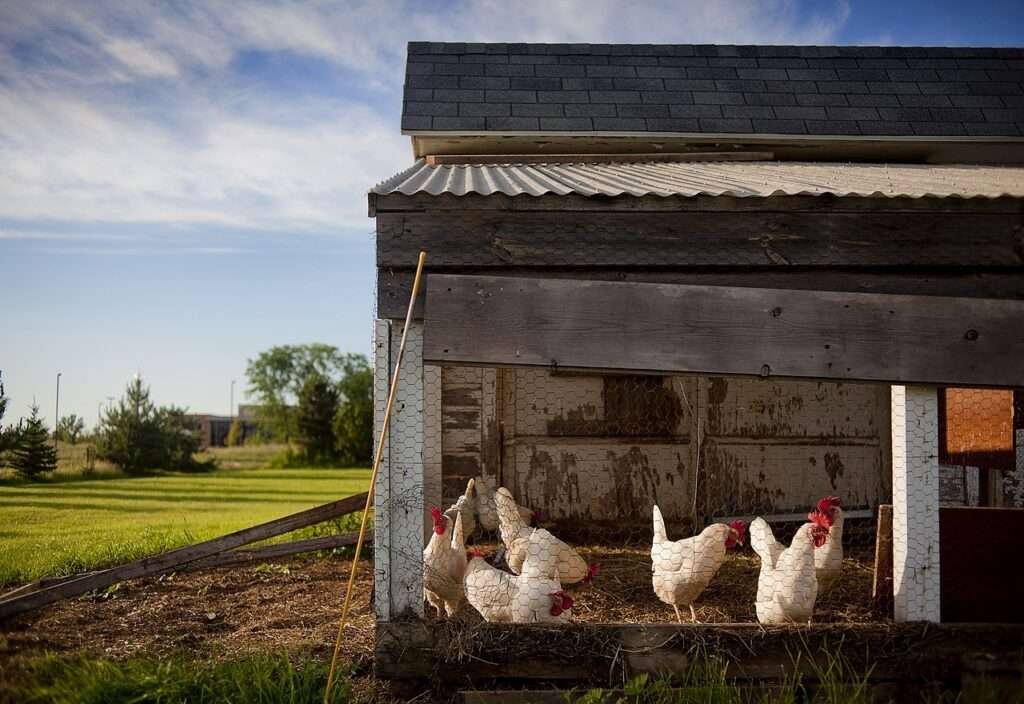
Considering Second-Hand Chicken Coops For Sale
Before you dive into the exciting world of second-hand chicken coops, it’s essential to understand the advantages and potential challenges of this option.
Benefits of Buying Second-Hand Coops
- Cost Savings: Purchasing a second-hand coop can be significantly more budget-friendly than investing in a brand-new one. This cost-effectiveness extends to both the initial purchase price and any potential upgrades or repairs.
- Sustainability: By opting for a second-hand coop, you reduce the demand for new manufacturing and materials, contributing to a more eco-friendly choice.
- Ready-Made Structure: Second-hand coops often come fully assembled, saving you the time and effort required to build from scratch.
Challenges of Second-Hand Coops
- Maintenance History: You may not have complete knowledge of how well the coop was maintained or treated by the previous owner. This can affect its condition and longevity.
- Potential Repairs: Depending on the coop’s age and condition, you might need to invest time and resources in repairs or upgrades to meet your specific needs.
- Compatibility: Second-hand coops may not perfectly align with your flock’s requirements, necessitating modifications or adaptations.
Before you begin your search for the perfect second-hand chicken coop, it’s crucial to assess your needs and preferences. Consider the size of your flock, available space in your backyard, and the local climate. Once you’ve outlined your requirements, you can start exploring the second-hand coop market.
In the following sections, we’ll delve into essential aspects to consider when evaluating second-hand coops. The checklist includes structural integrity, ventilation, security, and more, ensuring your coop meets your chickens’ needs for years to come.
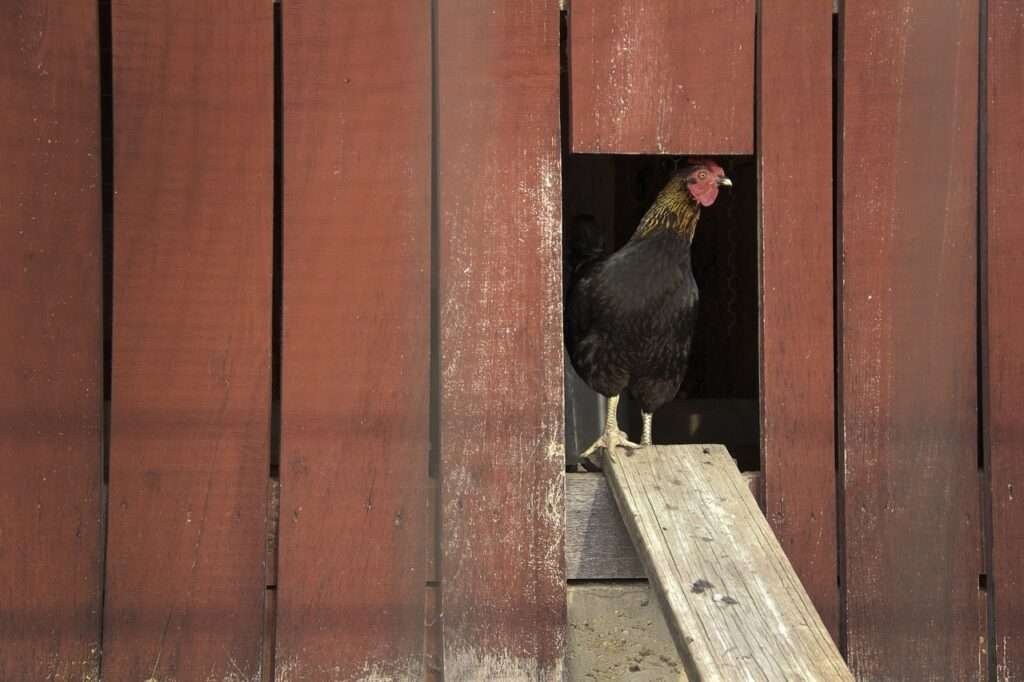
Inspecting the Structure
When you’re considering a second-hand chicken coop, the coop’s structural integrity should be your first focus. A sturdy and well-maintained structure not only provides a safe and comfortable environment for your flock but can also save you the hassle and cost of extensive repairs.
Check the Roof:
- Inspect the roof for any signs of damage, such as leaks or missing shingles. A watertight roof is crucial to keep your chickens dry and comfortable.
Examine the Walls:
- Carefully assess the walls for cracks, rot, or warping. Weak walls can compromise the coop’s security and insulation.
Inspect the Flooring:
- Examine the coop’s floor for signs of damage or wear. A solid and intact floor ensures a clean and hygienic environment for your chickens.
Look for Signs of Rust:
- If the coop has any metal components, check for rust. Rust can weaken structures over time and may need attention.
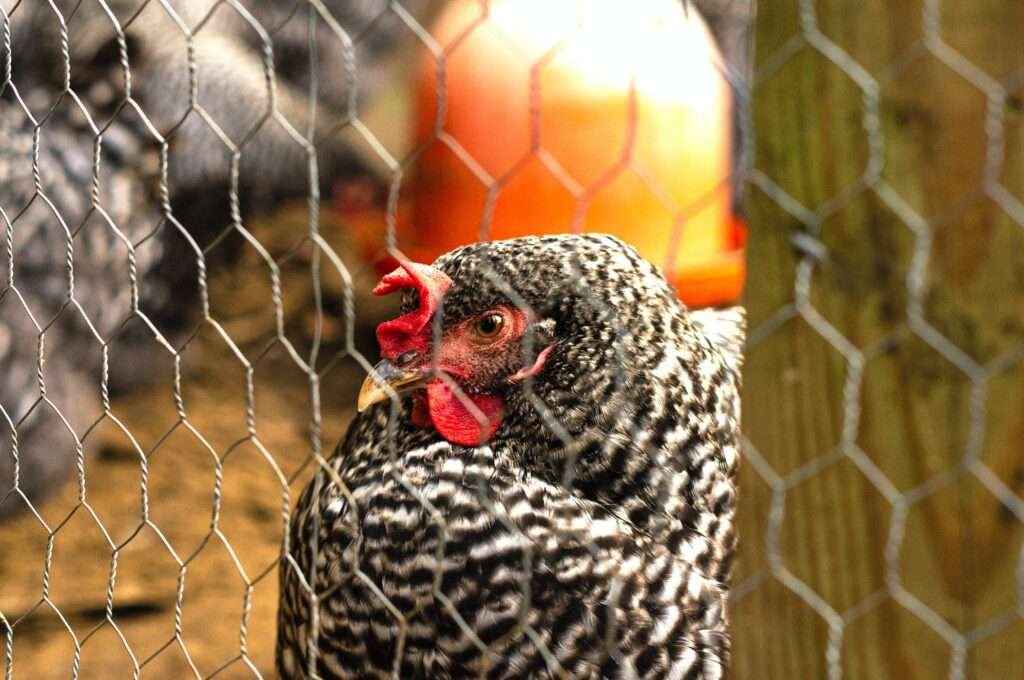
Evaluating Ventilation and Airflow
Adequate ventilation is vital for maintaining a healthy and comfortable coop environment. Poor airflow can lead to issues like moisture buildup, ammonia odors, and heat stress for your chickens. Here’s what to consider:
Ventilation Openings:
- Check if there are sufficient ventilation openings or windows in the coop to allow fresh air to circulate.
Screens and Covers:
- Ensure screens or covers are in good condition, keeping pests out while allowing airflow.
Window Seals:
- Examine window seals to ensure they effectively block drafts in cooler months.
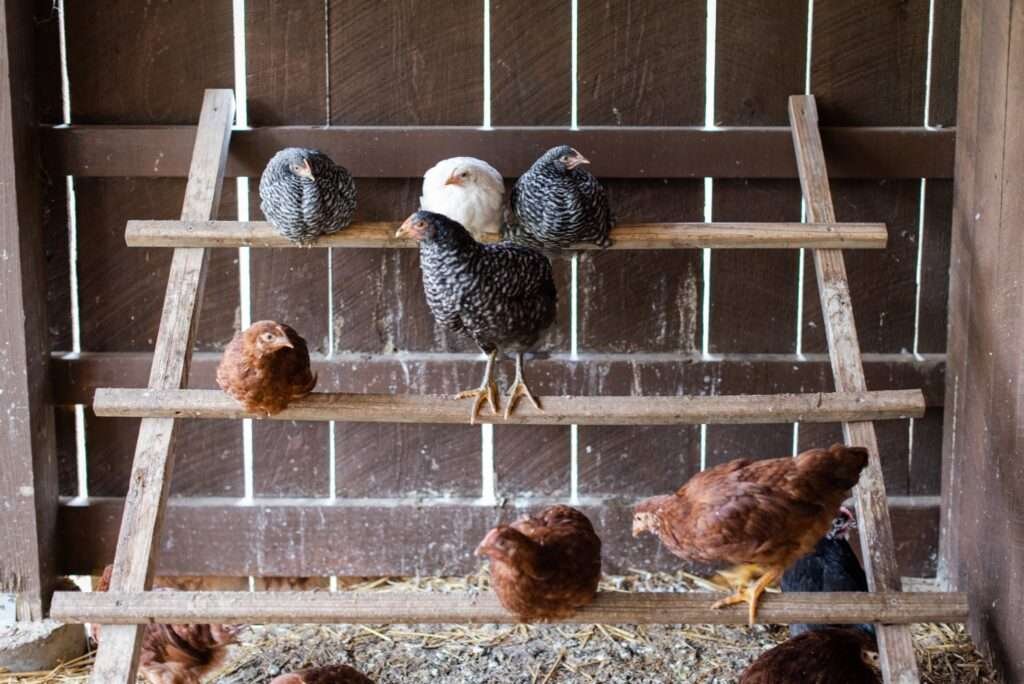
Ensuring Security and Predatory Protection
The safety of your chickens is a top priority. Coop security and protection against potential predators are critical aspects to evaluate.
Locking Mechanisms:
- Check the coop’s locking mechanisms for doors and windows. They should be in good working condition, preventing unauthorized entry.
Mesh and Fencing:
- Examine the coop’s fencing and mesh. Ensure there are no holes or weak points where predators could gain access.
Predator-Proofing:
- Consider additional predator-proofing measures, such as burying wire mesh to deter digging predators.
Nesting Boxes and Roosts:
- Assess the condition of nesting boxes and roosts. They should be sturdy and clean, providing a safe and comfortable space for your chickens to lay eggs and rest.
By thoroughly inspecting these aspects, you can confidently assess the condition of a second-hand chicken coop. Keep in mind that while some wear is expected with second-hand coops, the key is to identify any significant issues that may require immediate attention or investment. Once you’ve selected a coop that meets your standards, you’ll be one step closer to providing a safe and welcoming home for your feathered friends.
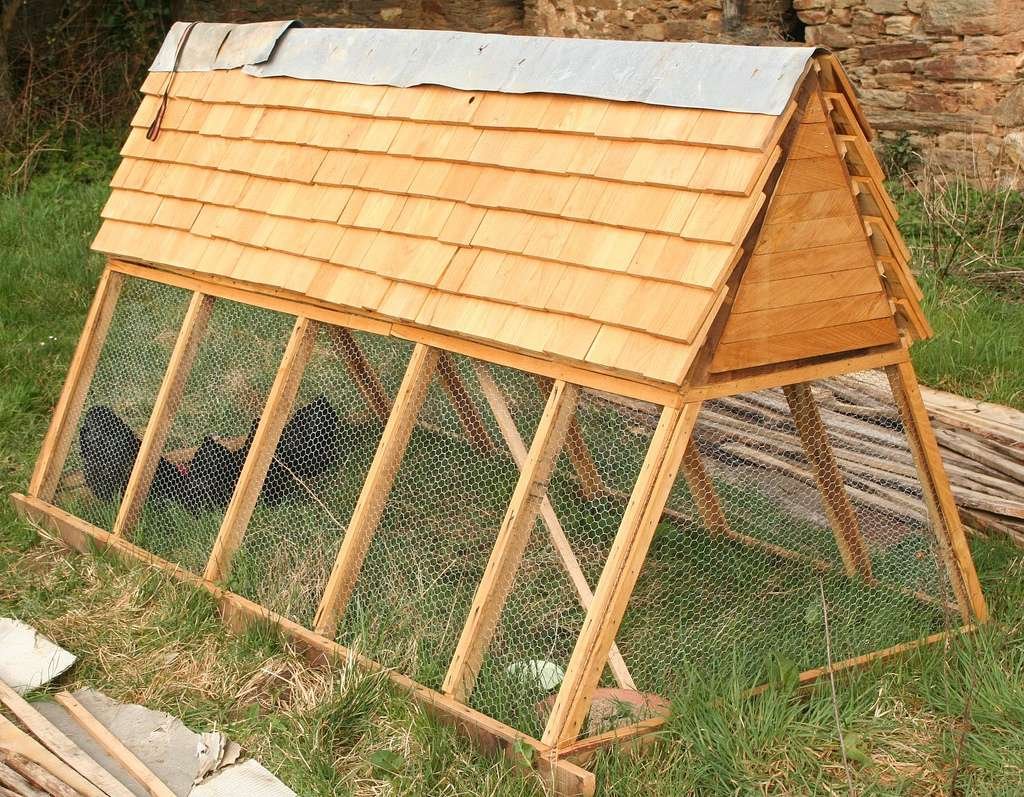
Additional Considerations of Second-Hand Chicken Coop For Sale
As you continue your journey in finding the perfect second-hand chicken coop, several more factors merit your attention. These considerations will help ensure that the coop you select aligns perfectly with your specific needs.
Coop Size:
- Confirm that the coop’s size matches the number of chickens you plan to keep. Adequate space is essential for your flock’s health and well-being. As a general guideline, allow for 2-3 square feet of space per chicken inside the coop and 8-10 square feet in the outdoor run or free-range area.
Location and Placement:
- Consider where you’ll place the coop in your backyard. Ensure it receives sufficient sunlight and is protected from strong winds. Evaluate the coop’s accessibility for cleaning, egg collection, and daily maintenance.
Resources and Budget:
- Determine your budget for purchasing the second-hand coop and any potential repairs or upgrades. Be prepared to allocate resources for any necessary improvements.
History and Maintenance Records:
- If possible, obtain information on the coop’s history and maintenance records from the previous owner. Knowing how the coop was cared for can offer insights into its condition and potential issues.
Customization and Adaptation:
- Recognize that second-hand coops may not perfectly match your requirements. Be prepared to adapt the coop to suit your flock’s specific needs, whether it involves adding nesting boxes, roosts, or enhancing security measures.
Cleanliness and Hygiene:
- Prioritize cleanliness when assessing a second-hand coop. A clean coop is easier to maintain and reduces the risk of disease. Thoroughly clean and disinfect the coop before introducing your chickens.
Local Regulations:
- Familiarize yourself with local regulations and zoning ordinances related to chicken coops. Ensure that the coop complies with any relevant laws in your area.
Age and Longevity:
- Consider the coop’s age and its potential longevity. An older coop may require more repairs and maintenance, so evaluate whether it aligns with your long-term goals.
By addressing these considerations, you’ll be well-prepared to make an informed decision when purchasing a second-hand chicken coop. Remember that every coop has its unique charm and challenges. Your goal is to find a coop that suits your needs, provides a safe and comfortable home for your chickens, and offers the satisfaction of contributing to sustainability through recycling a pre-owned structure.
In the final section of this guide, we’ll summarize the key takeaways and encourage you to embrace the adventure of owning a second-hand chicken coop.
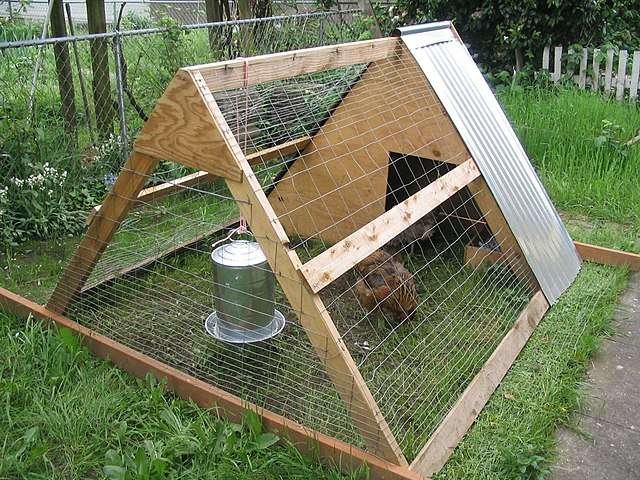
Your Path to a Second-Hand Chicken Coop
As you embark on your journey to find the ideal second-hand chicken coop, it’s essential to remember that the quest itself is part of the adventure. Each coop has its unique story, character, and potential, waiting for the right flock to call it home. By following the checklist and considerations outlined in this guide, you can confidently navigate the world of second-hand chicken coops.
In your pursuit of a coop that fits your needs and budget, don’t forget to embrace the possibilities for customization and personalization. A second-hand coop provides a canvas for you to add your touch, making it uniquely yours.
While second-hand coops may require some initial effort and care, they offer a sustainable and cost-effective solution for providing your chickens with a safe and comfortable home. As you welcome your flock into their new coop, you’ll take pride in knowing that you’ve made a choice that benefits both your feathered friends and the environment.
Remember that raising chickens is a rewarding and fulfilling experience, and the coop you choose is an integral part of that journey. With the right coop in place, you’ll be well on your way to enjoying fresh eggs, delightful clucking sounds, and the joys of tending to your backyard flock.
So, go ahead – start your search for the perfect second-hand chicken coop, and prepare for the delightful adventure of becoming a chicken keeper. The clucks and camaraderie of your flock await, and with your newfound coop, they’ll have a cozy place to call home.
Best of luck in your quest for the ideal coop, and may your chicken-keeping journey be filled with feathered joy and countless fresh eggs.
Looking for Chicken Coops for Sale?
If you’re ready to start your search for the perfect second-hand chicken coop, explore our listings of chicken coops for sale in your area. With the checklist and considerations from this guide in hand, you’ll be well-prepared to make an informed choice and provide a wonderful home for your chickens.
If you have any questions or need further guidance on coop selection, feel free to reach out to our community of experienced chicken keepers who are eager to share their insights and expertise. Happy chicken-keeping!
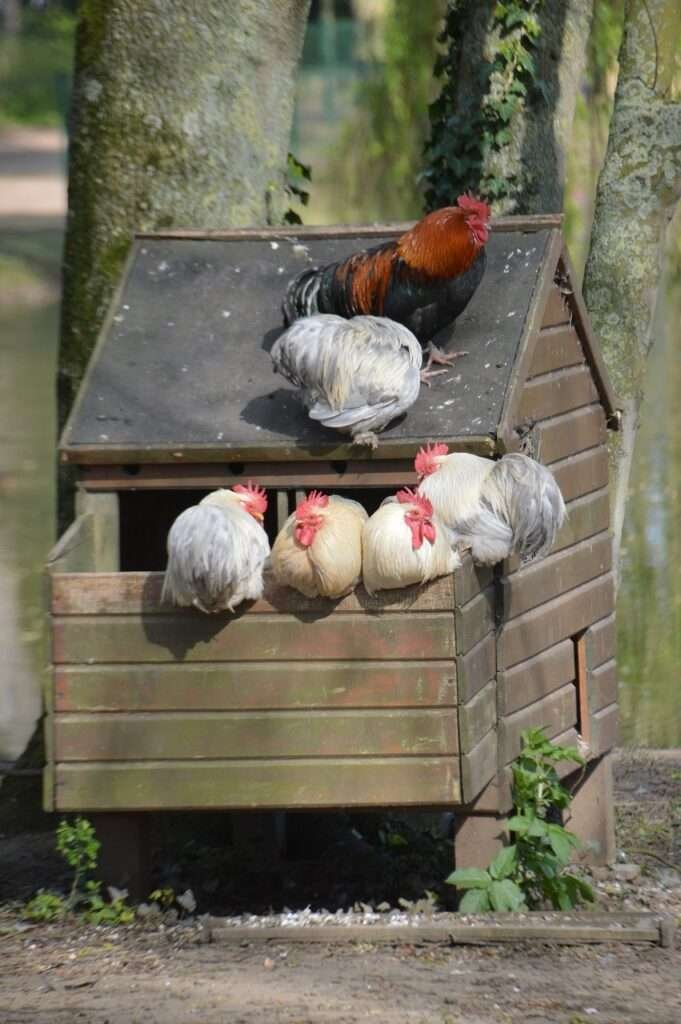
Frequently Asked Questions About Buying Second-Hand Chicken Coops
- Are second-hand chicken coops a good investment?
- Yes, second-hand coops can be an excellent investment, offering cost savings and sustainability. However, it’s essential to carefully inspect and assess the coop’s condition.
- What should I look for when inspecting a second-hand coop’s structure?
- Check the roof, walls, flooring, and for any signs of rust or structural damage. A sound structure is crucial for your chickens’ safety.
- How can I evaluate the coop’s ventilation and airflow?
- Ensure the coop has adequate ventilation openings, screens, and well-sealed windows to maintain proper airflow without drafts.
- What security measures should I consider for a second-hand coop?
- Inspect locking mechanisms, mesh, and fencing. Consider additional predator-proofing measures, such as buried wire mesh, to enhance security.
- What are the benefits of second-hand coops in terms of sustainability?
- Second-hand coops reduce the demand for new manufacturing and materials, contributing to a more eco-friendly choice.
- Is it necessary to disinfect a second-hand coop before introducing my chickens?
- Yes, it’s essential to clean and disinfect the coop to prevent the potential spread of diseases and create a hygienic environment for your chickens.
- How can I determine if a second-hand coop will fit my chicken flock’s size?
- Calculate the coop’s available space and ensure it meets the general guideline of 2-3 square feet per chicken inside the coop and 8-10 square feet in the outdoor run.
- Are there any local regulations or laws I should consider when purchasing a second-hand coop?
- Yes, familiarize yourself with local regulations and zoning ordinances related to chicken coops to ensure compliance with relevant laws in your area.
- What should I do if the second-hand coop requires repairs or upgrades?
- Be prepared to allocate resources for any necessary improvements, and consider the potential cost of repairs when evaluating the coop’s overall value.




